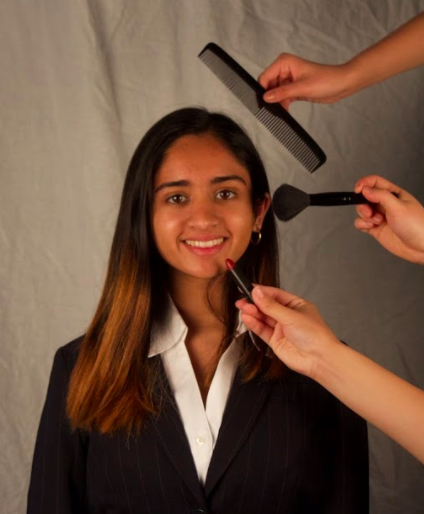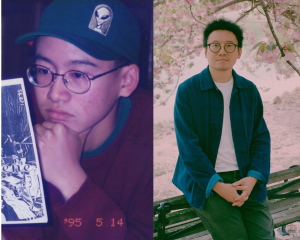The perceptions of beauty at work

April 27, 2017
The phrase “beauty is power” proves to be true in work settings; when it comes to finding a job or getting paid, an employee’s physical appearance can play a larger than expected role. The halo effect, or beauty bias, is the psychological and biological phenomenon in which humans are naturally attracted to things that are beautiful.
Scientifically speaking, these “beautiful things” stem from features of potential mates, which give them higher chances of survival. In a work setting, this translates to an employer’s search for individuals who they believe will aid them and their company in achieving success. As a result, physical appearance can play a large role in one’s job prospects, income and success in interviews.
Beauty bias describes the idea that physically attractive individuals are rewarded both socially and biologically. This phenomenon is based on the psychological association of beauty with a positive mindset. For example, take the word “ice cream”: the simple mention of the word may trigger positive emotions as our bodies automatically associate it with memories of warm summer days at the amusement park with friends or family.
In the same way, a person’s physical features can have a similar effect, as our minds are trained from a young age to associate beauty with good personality traits. Oftentimes, society and the media influence what people perceive as beautiful.
When meeting someone new, one’s perception of a person can be skewed purely by appearance as the brain is forced to make inferences to supplement unknown information.
“First impressions don’t go away,” said business teacher Leslie Robledo. “If you’re dressed well and present yourself well, that can take you a long way.”
For example, if the person is dressed in a suit, one may assume that the person is serious in nature. Furthermore, the brand of the suit may be an indication of the person’s income or social class.
“I’d say making inferences based on a person’s looks is often interrelated with many -isms we have in society, such as racism, sexism and classism,” said Christopher Lee, a former recruiter for technology companies in the Bay Area.
Catherine Hamkin, Senior Research Fellow at The Center for Policy Studies in London, suggests that attractive workers are likely to earn seven to 13 percent more than other coworkers. A 2010 Newsweek study showed that 64 percent of hiring managers agree that beauty plays a factor in the hiring process.
Beauty can affect women both positively and negatively, as it can give women a higher chance at obtaining jobs, but can sometimes make them perceived as less serious.
“I have seen women hired for their beauty, specifically in secretary positions,” said Lee. “A lot of times, companies want a ‘beautiful’ secretary to show off as an asset.”
On the other hand, women who are perceived as “gorgeous” can be less likely to be considered for top executive positions, because their beauty can also make them appear to be less serious or intelligent. This is due to societal stereotypes caused by portrayal of “pretty” people as simple minded in entertainment.
Beauty also plays a role in how much male employees earn. According to Newsweek, attractive men earn 5 percent more than less attractive men. Economist Daniel Hamermesh said that over his career, an attractive male will on average make $250,000 more than less attractive males.
While women who are considered beautiful are perceived as dimwitted, often times the opposite is true for men. This is an effect of cartoons and other media directed at young children, which often depict heroic characters with similar traits: big eyes, heart-shaped faces and fit bodies. In combination, these traits ingrain the association of such physical traits with positive personality characteristics and a good work ethic, which can be reflected in a work setting.
In different cultures, beauty and attractiveness can hold varying degrees of importance when applying for a job. In Silicon Valley, where the culture is very laid back, employees are not expected to dress formally every day when they come to work.
In many Asian countries, it is a requirement to attach photos to one’s resume if they wish to apply for a work at certain companies. This is a result of the high beauty standards in many Asian countries such as China and South Korea, and the association of beauty with success. Because of this emphasis on beauty in Korean culture, plastic surgery is a common graduation present for college graduates in Korea who are looking for jobs.
“There’s a huge belief in Korea that you have to look pretty to get hired. It’s very common for Korean people to use Photoshop on their images to make them look better,” said Lee. “I think when it comes to hiring decisions, beauty plays a much more important role in Korea as a result of the practice of putting pictures on the resume. That’s the first thing you see when you see a resume. Even if recruiters do not want that to factor into their decision, it’s going to still unconsciously bias them.”
Although beauty plays a role, character and talent have been known to overpower a person’s looks. Greek philosopher Socrates, French philosopher Jean-Paul Sartre and English writer George Eliot were known to be unattractive, yet successful and powerful contributors to society. Abraham Lincoln, who was also known to be unattractive once joked, “If I had another face, do you think I’d wear this one?”
In most cases, beauty is factored in only after a candidate is deemed qualified for a job. When hiring managers rank the factors of an applicant’s profile, beauty places third, after experience and confidence.
“I think what’s most important is that you’re comfortable in your own skin,” sophomore Leslie Pu said. “You should be comfortable with how you look and with yourself as a person. I think that shows confidence and I think confidence is really the most important thing.”
Companies have noticed that beauty often skews perceptions of their employees and many companies are looking for ways to alleviate unintentional beauty bias in the hiring process. For example, some companies have been conducting more interviews on the phone so that the emphasis is on a candidate’s skills instead of a candidate’s looks. Companies have also been eliminating names from resumes when distributing them to recruiters, so recruiters can focus on a candidate’s skills, qualifications and experience, and not allow possible bias of a candidate’s race or gender to affect a decision.
“Ultimately, a candidate’s skills are the most important,” said Lee. “No matter how good a candidate looks, if he cannot do the job, we can’t hire him.”




























































